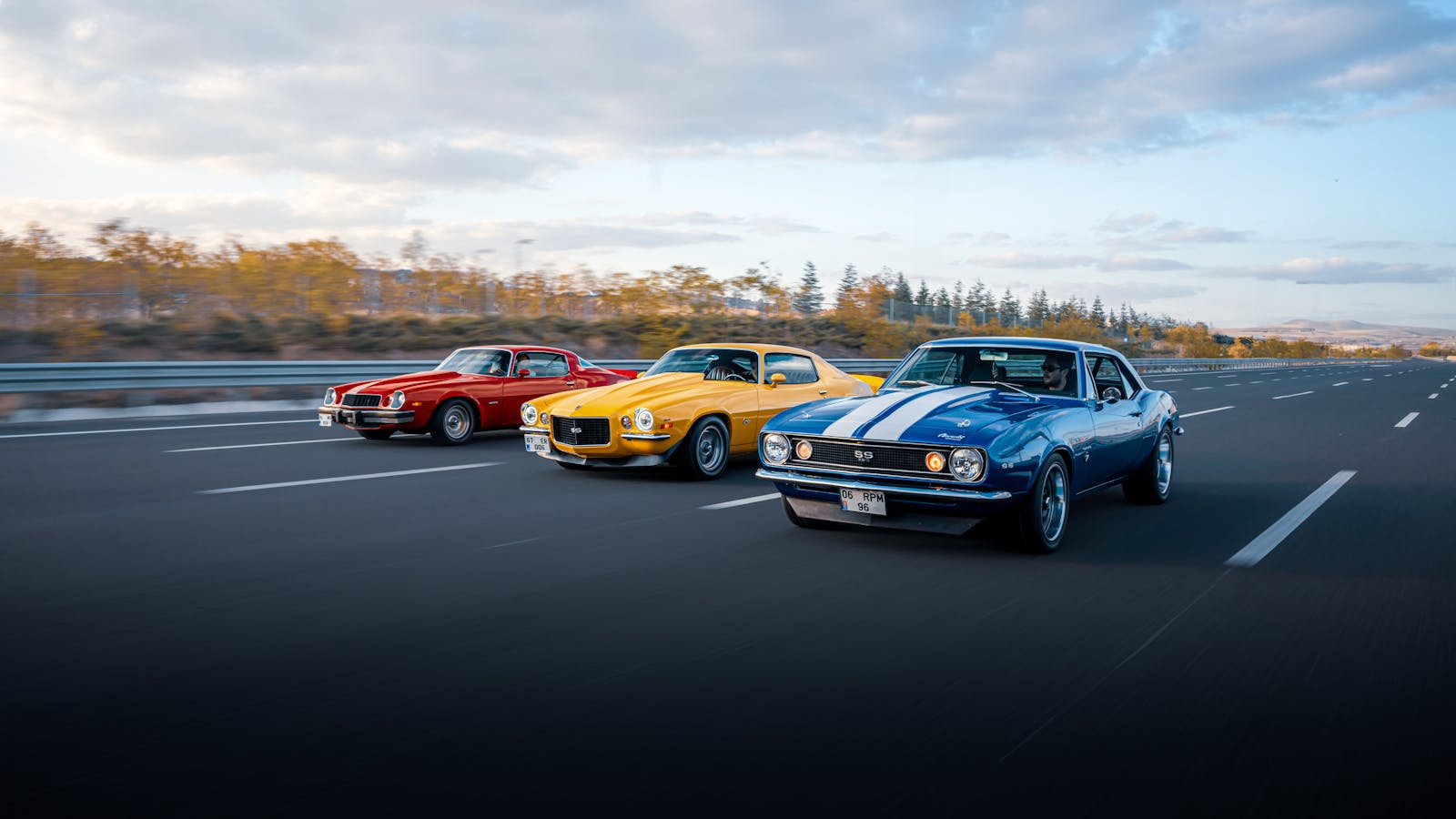
Muscle cars have long been synonymous with American automotive culture, embodying a spirit of freedom and power that resonates with enthusiasts and casual drivers alike. From the roaring engines to the sleek designs, these vehicles have made an indelible mark on the nation’s roads and its identity. As automotive manufacturers continue to innovate and redefine performance in the 21st century, six iconic muscle cars stand out for their lasting impact on the sound of freedom in America.
1. Ford Mustang (1964–Present)
Introduced in 1964, the Ford Mustang quickly became a symbol of American muscle and freedom. With its aggressive styling and powerful engine options, including the 5.0-liter V8, the Mustang has sold over 10 million units worldwide. Its unmistakable roar has not only made it a favorite among car enthusiasts but has also solidified its place in American pop culture, appearing in films, television shows, and music.
2. Chevrolet Camaro (1967–Present)
The Chevrolet Camaro debuted in 1967 as a direct competitor to the Ford Mustang, quickly earning a reputation for its performance and style. With various engine choices, including the legendary 6.2-liter V8, the Camaro was designed for speed and agility. Over the years, it has maintained its status as an American icon, with the 2023 model continuing to impress with its powerful sound and sporty design, contributing to over 5 million units sold globally.
3. Dodge Challenger (1970–Present)
First released in 1970, the Dodge Challenger has carved a niche for itself in the muscle car segment with its retro styling and formidable performance. Known for its wide-body design and high-performance engines, including the supercharged 6.2-liter HEMI V8, the Challenger appeals to those who crave power. The 2022 model, with its 807 horsepower version, echoes the classic muscle car ethos, drawing in a new generation of fans while celebrating its storied past.
4. Pontiac GTO (1964–1974)
Often referred to as the original muscle car, the Pontiac GTO was instrumental in shaping the genre during the 1960s. Its introduction of the term “muscle car” and its powerful 389 cubic-inch V8 engine set the standard for performance. Although production ceased in 1974, the GTO’s legacy continues to inspire modern iterations and remains a sought-after classic, reminding car enthusiasts of a time when raw power and American engineering thrived.
5. Mercury Cougar (1967–2002)
The Mercury Cougar was launched in 1967 as a luxury variant of the Mustang, offering a combination of style and performance that appealed to a wide range of drivers. With engines that included the 4.6-liter V8, the Cougar was known for its sleek design and smooth ride. While it may not have achieved the same legendary status as some of its competitors, its unique blend of performance and elegance has left a lasting impression on the muscle car landscape.
6. Shelby GT350 (1965–1970, 2015–2020)
The Shelby GT350 is a performance variant of the Ford Mustang that first appeared in 1965. With its race-ready modifications and a powerful 289 cubic-inch V8 engine, the GT350 was designed for speed and agility on the track. The model was revived in 2015, featuring a 5.2-liter flat-plane crank V8 that produces over 500 horsepower, reinvigorating the muscle car scene and emphasizing the importance of heritage in American muscle car culture.
The Cultural Impact of Muscle Cars
Muscle cars have significantly influenced American culture, representing more than just vehicles; they symbolize freedom, rebellion, and the open road. Their presence in movies, music, and art reflects a deep-rooted connection to Americana and the desire for individual expression. Sales figures indicate that despite shifting trends towards electric vehicles, muscle cars continue to thrive, with the Ford Mustang alone selling over 61,000 units in 2022, proving their enduring appeal.
Conclusion: The Future of Muscle Cars
As automotive technology advances and environmental concerns grow, the future of muscle cars remains uncertain. However, manufacturers are working on hybrid and electric versions that aim to maintain the performance and sound that have defined these vehicles for decades. As long as there is a demand for power and freedom on the open road, muscle cars will continue to play a vital role in American automotive history.
Car enthusiasts and potential buyers
